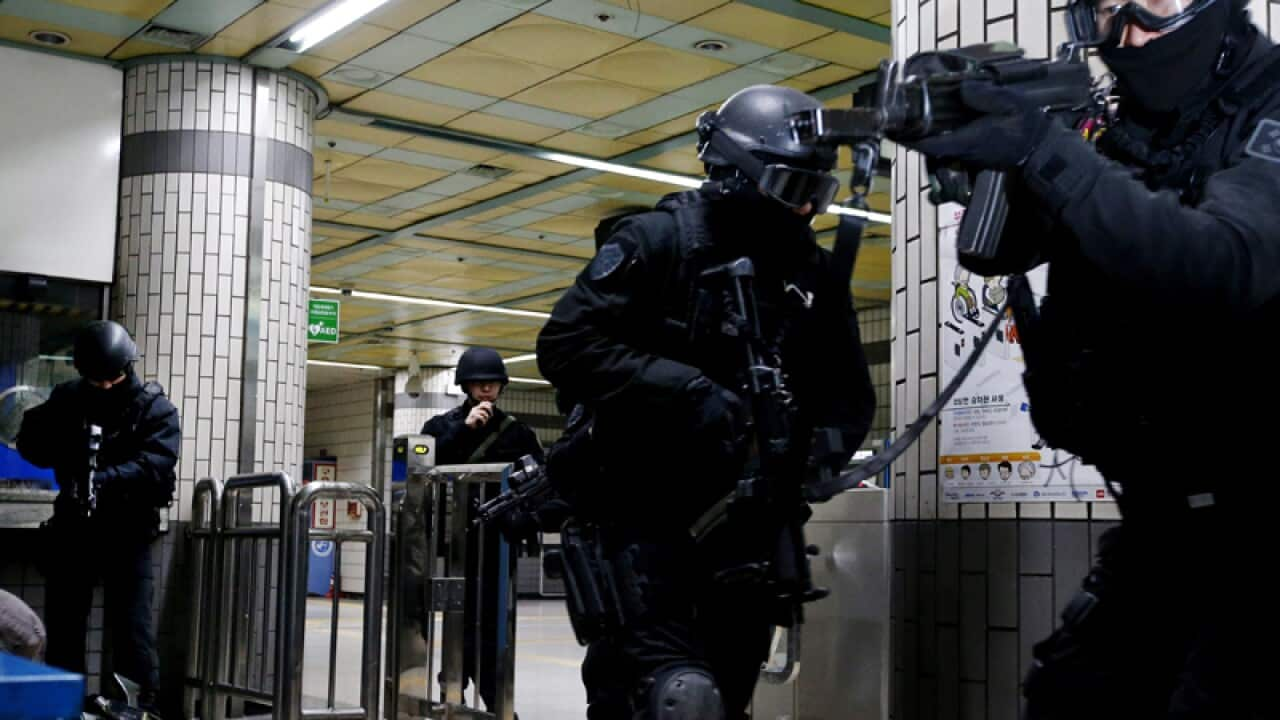South Korea's opposition MPs have continued their non-stop speeches for a fifth straight day in parliament to block a vote on a government-backed anti-terrorism bill they say would threaten personal freedoms and privacy if passed into law.
Jung Cheong Rae spoke for nearly 12 hours before leaving the podium late on Saturday afternoon, breaking a record for the country's longest parliamentary speech set on Wednesday by fellow opposition legislator Eun Soo Mi, who spoke for 10 hours and 18 minutes.
Jin Sun Mee, who replaced Jung, was the 18th lawmaker to participate in the session since opposition MPs decided on Tuesday to resort to a filibuster, the country's first since 1969.
With the filibuster exceeding 90 hours, it is one of the longest in history. In 2011, Canada's New Democratic Party orchestrated a session that lasted 58 hours.
For their plan to succeed, the MPs would need to continue their speeches until midnight of March 10, when the current parliamentary session is scheduled to end.
Desperate to prolong their time-dragging efforts, several MPs wore sneakers to the podium and refrained from drinking water to avoid going to the bathroom.
Most of them spent time reading related laws, academic studies, news articles and internet comments.
One MP pulled out a copy of George Orwell's 1984 and read extensively from it.
President Park Geun-hye and her ruling Saenuri Party have endorsed the bill granting greater power to the National Intelligence Service, Seoul's main spy agency, to investigate individuals and groups.
They point to threats posed by North Korea, which recently conducted a nuclear test and a long-range rocket launch, and activities by militants such as the Islamic State group.
Opposition MPs say the bill doesn't have sufficient measures to prevent the agency from abusing its powers for civilian surveillance.
"It's North Korea that fired a missile, but why does the NIS want to look into the mobile phones of South Koreans? It's North Korea that fired a rocket, but why does the NIS want to track the bank accounts of South Koreans?" Jung said as he continued his rambling monologue.
The NIS has a history of meddling in politics and spying on civilians and journalists.
Two NIS directors who successively headed the spy service from 1999 to 2003 were convicted and received suspended prison terms for overseeing the monitoring of mobile phone conversations of about 1800 of South Korea's political, corporate and media elite.

